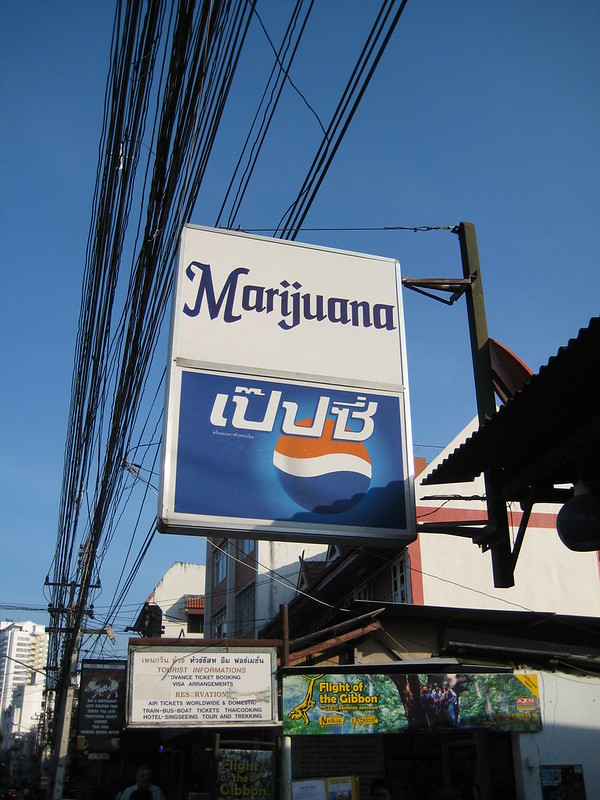Thailand’s Progressive Shift: Legalizing Cannabis Amidst Harsh Drug Policies in Southeast Asia
In a region notorious for its exceedingly punitive drug policies, Thailand has taken an unprecedented step by becoming the first Asian country to legalize cannabis. Historically, Thailand has grappled with a massive prison population and strikingly high rates of female incarceration, primarily related to drug offenses. The nation has faced severe penalties for drug-related crimes, including the death penalty, a remnant from harsher eras, though it has not seen executions for over a decade.
A Transformative Journey: From Repression to Reform
Thailand’s transformation began amidst its long-standing anti-drug campaign, which in 2003 was linked to the extrajudicial killings of at least 2,400 individuals. The country also frequently detained individuals in compulsory rehabilitation centers, further spotlighting the limitations of its drug policies. The crisis compelled Thailand to begin reforming its approach toward drug use.
Several landmark changes occurred from 2021 onward:
- Kratom Decriminalization: Kratom, a local plant often utilized as a mild stimulant, was legalized.
- Narcotics Code: A new code introduced reduced penalties and aimed to foster a health-oriented response to drug use.
- Cannabis Legalization: In June 2022, cannabis was officially legalized, allowing a higher degree of freedom surrounding its sale and use.
Navigating the New Cannabis Landscape
On June 9, 2022, Thailand witnessed its first wave of legal cannabis purchases. Under the updated laws:
- Cannabis has been removed from the controlled substances list.
- Only cannabis extracts with over 0.2% THC (the psychoactive component) remain illegal, largely targeting cannabis oil.
Despite this stride towards normalization, clarity around regulations is still lacking. Proposed legislative definitions concerning cannabis extracts, sales, and cultivation have yet to be finalized, creating a temporary grey area for consumers and vendors. Mobile vendors selling pre-rolled joints and various strains have become commonplace in tourist hotspots, further highlighting the evolving cultural landscape.
Government Initiatives and Emerging Concerns
The government even initiated the distribution of one million cannabis plants to residents, effectively encouraging home cultivation. While officials assert that these reforms primarily aim for medical purposes, the lack of clarity about the boundaries of legal use raises questions. Presently, cannabis buds and flowers can be bought effortlessly, blurring the lines between medical and recreational use.
Health Minister Anutin Charnvirakul has touted these reforms as pivotal for public health and the economy. However, the rapid implementation has sparked concern about:
- Insufficient public consultation.
- The ineffectiveness of government-provided medical cannabis products, forcing patients back to the black market.
- High costs for small-scale farmers, limiting their market entry and competition against larger businesses.
Advocacy groups are responding by proposing a people’s draft law aimed at decentralizing cannabis regulation, ensuring that small farmers and local businesses can thrive in this new economy.
Impact of Drug Law Reforms on Society
Thailand’s legal reforms have had a noteworthy effect on its prison population. Notably:
- Over 10,000 individuals previously convicted of kratom-related offenses have been released.
- Additionally, more than 3,000 cannabis-related convictions were expunged.
The implementation of the Narcotics Code has encouraged prisoners to seek sentence reassessments, potentially leading to their release — a stark contrast to the swift implementation of cannabis laws.
A Model for the Region
As Southeast Asian nations grapple with entrenched punitive drug regimes, Thailand’s shift towards reformed drug policies serves as a potential model. While questions and uncertainties linger regarding the long-term impacts of these reforms, there is an undeniable hope that Thailand may lead neighboring countries towards a more humane and health-focused approach to drug use.
In conclusion, while Thailand is taking significant steps away from brutal drug policies, the journey is fraught with challenges. Continuous efforts toward education and safe practices, coupled with inclusive regulatory measures, will be vital for ensuring the success of cannabis legalization and its broader implications for drug policy reform in the region.
Further Reading:
This article aims to provide a comprehensive overview of Thailand’s transformative drug reform journey, marking a pivotal shift in a region historically burdened by draconian drug policies.


